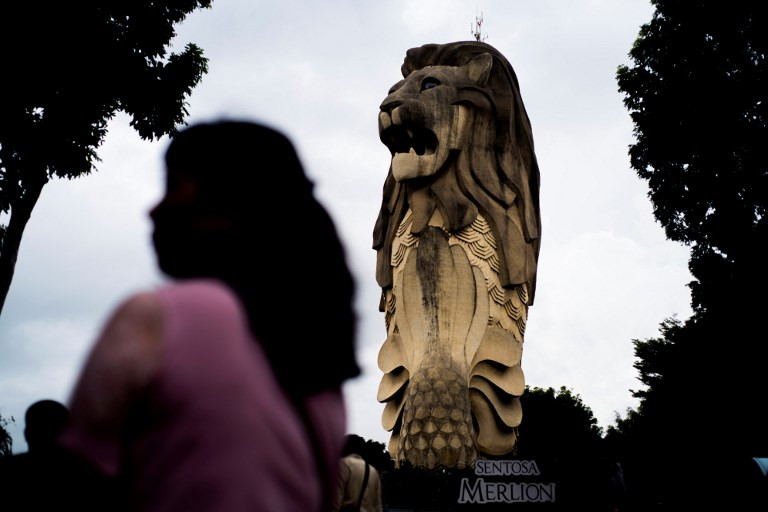Popular Reads
Top Results
Can't find what you're looking for?
View all search resultsPopular Reads
Top Results
Can't find what you're looking for?
View all search resultsSingapore boosts spending, curbs foreign-worker rules in budget
The government is projecting an overall budget deficit of 0.7 percent of gross domestic product in the year ending March 2020, compared with a revised surplus of 0.4 percent in the current fiscal year, Finance Minister Heng Swee Keat said in Parliament on Monday.
Change text size
Gift Premium Articles
to Anyone
S
ingapore will boost spending on health care for its aging population, give some citizens a tax rebate and tighten restrictions on foreign workers ahead of an election that could come as early as this year.
The government is projecting an overall budget deficit of 0.7 percent of gross domestic product in the year ending March 2020, compared with a revised surplus of 0.4 percent in the current fiscal year, Finance Minister Heng Swee Keat said in Parliament on Monday.
Authorities are trying to strike a careful balance before the election: bolstering an economy that’s been hit by weaker global demand, providing more support for elderly citizens, while still sticking to a tradition of fiscal prudence. The budget comes against the backdrop of a weakening economy, with growth being hit by global trade worries.
“Singapore must always be pre-emptive,” said Barnabas Gan, an economist with United Overseas Bank Ltd. in Singapore. “We are a small nation and also there’s this urgent demand for greater expenditure for health care in light of the aging population.” It’s all about “preparing for the next decade,” he added.
Here’s a look at what Heng outlined in his budget speech:
Defense
Heng said about 30 percent of the budget will be spent on defense, security and diplomacy efforts, which was “significant, but indispensable.” Beyond the threat of physical attacks, the government is focusing on cyber security, and will set up an agency to beef up its capabilities.
Foreign Workers
In order to boost productivity in food and retail businesses and reduce the dependency on overseas workers for these jobs, the government will lower the quotas for foreign workers in the services sector, starting in 2020. To help firms adjust to the policies and to bolster training for Singaporean workers, certain grants were extended for three years. Foreign-worker levies in the marine sector were deferred for another year.
Innovation
As part of its efforts to build a high-skilled technology workforce and industry, the government outlined a range of measures to support start-ups and support small businesses going digital. These include an “Innovation Agents” program that will be set up for industry professionals to serve as mentors to Singapore firms on a two-year basis; an additional S$100 million ($73.8 million) to be allocated to a fund meant to scale up Singapore firms and boost their presence abroad; and simplifying loans for small- and medium-sized enterprises.
Elderly Support
For the large cohort of the population that came of age during Singapore’s independence era, the government announced an S$8 billion support package, giving seniors support in five areas: S$100 top-up for spending on community activities and public transport; an added S$200 each year for five years for personal healthcare needs; additional subsidies for outpatient care and on their premiums; and a S$1,500 incentive for participation in a long-term care financing program.
Consumer Handouts
The budget includes a S$1.1 billion “bicentennial bonus” to commemorate the 200th anniversary of Sir Stamford Raffles’ arrival on the island. Lower-income Singaporeans will be eligible for more cash, while others will benefit from a personal-income tax rebate of as much as S$200 for the 2019 tax year. For families with school-age children and those close to retirement, additional cash will be made available.







